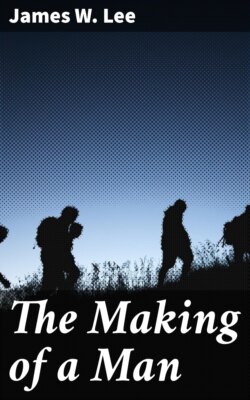Читать книгу The Making of a Man - James W. Lee - Страница 15
На сайте Литреса книга снята с продажи.
IV.
ОглавлениеTable of Contents
The disposition to accumulate, which is right and praiseworthy, should always be modified by right knowledge of the uses of property, and the methods by which it is amassed. Nothing is more pitiable than for a person to have more property than he has manhood. This indicates that the stress has been on the wrong side of the wealth. Such a man is under the sad necessity of taking his significance from the money he has accumulated, rather than the noble elements of life he should have secured in the process of obtaining it. With such a man, the end of business has been lost. He has consumed the end in the means. Instead of turning the elements of trade into manhood, manhood has been lost amid the maze and chaos of things. The order of progress has been violated, and the man, instead of moving on through business cares to immortal character, turns back to the earth, and seeks to substitute the tendency to move from it, by the disposition to settle permanently upon it. The desire to get rich has grown so abnormal and perverted, that it seeks to satisfy itself by the abundance of mere things. There are a great number of mowers and reapers, engines and cotton-gins, hats and shoes, pins and buttons; but a man has been lost in the making of them. This is more than all the mowers and reapers, cotton-gins and steam engines, pins and buttons ever made are worth. It is not mete that men should be sacrificed to the beauty and perfection of machinery, or to things machinery turns out. It is not necessary either. What we gain is not worth what we give. The machinery should be so manipulated as to get the things, and at the same time secure the perfection of men through the process. It is not necessary for the painter to lose himself in his art, and sacrifice his manhood to make his vision glow on the canvas. A proper regard for the methods and uses of art will result in leaving in the living spirit a picture more perfect than any painted by the brush. John Bunyan did not lose his manhood in portraying the history of a human soul in its attempts to get from earth to heaven. While conducting his pilgrim safely through the sorrow and temptations of life, to a home in a better world, he opened the pearly gates to his own soul. His work transfigured his life, and was the means of sanctifying it. All business and all work should lift up, and not hold down; it should make free, and not enslave; it should ennoble and not degrade. It is as honorable to make shoes or anchors as to paint pictures or write books. The shoemaker should learn the secret through his work of finding the sandals of manhood for his own feet. The blacksmith should learn, through the making of anchors for the great ships, to find the anchor that is to hold his own soul to the truth, amid the storms of life.
